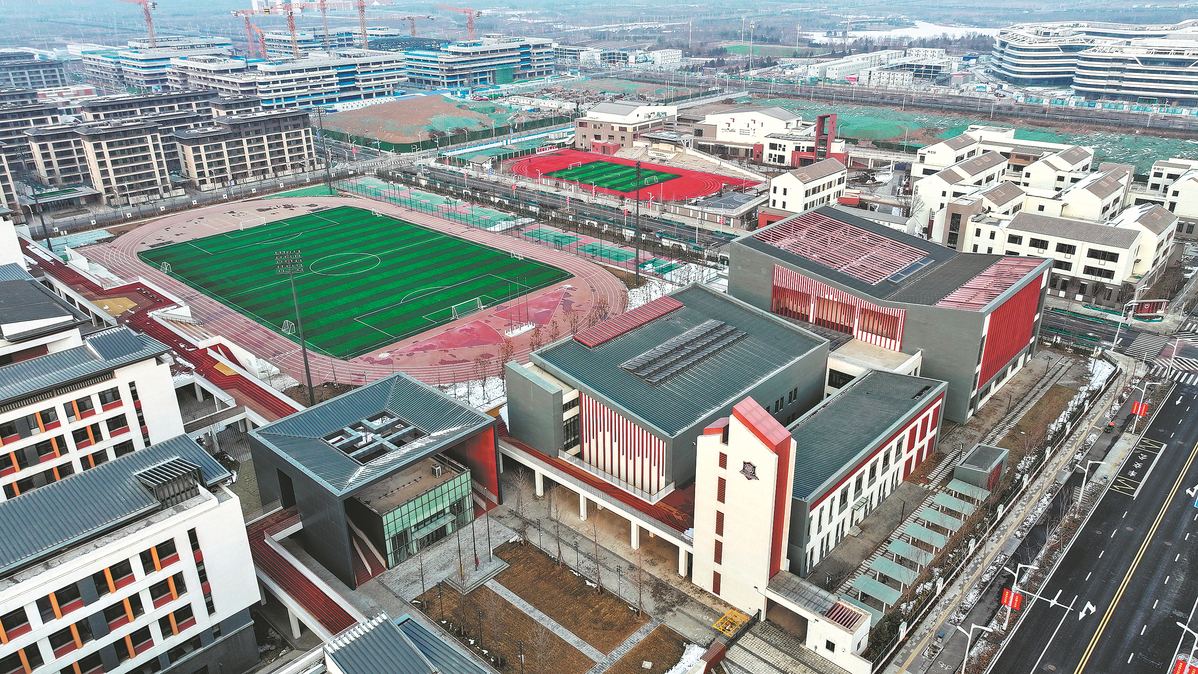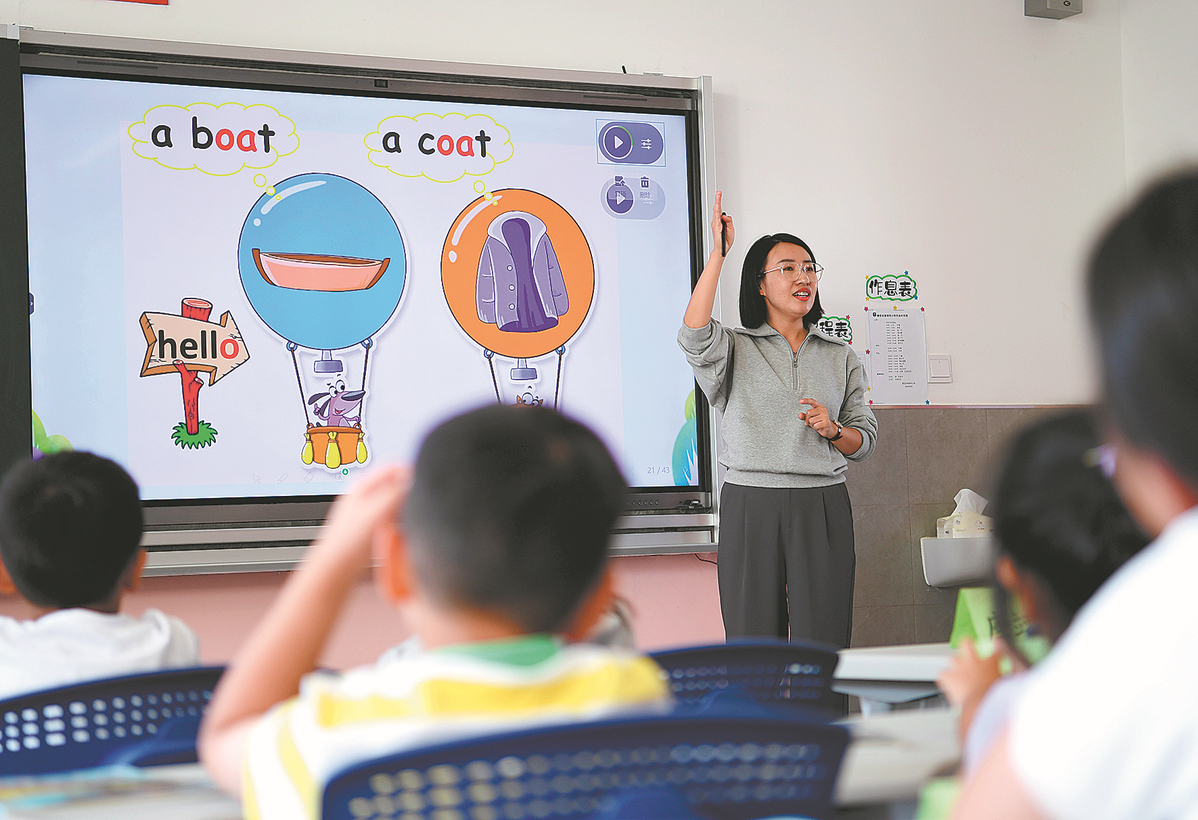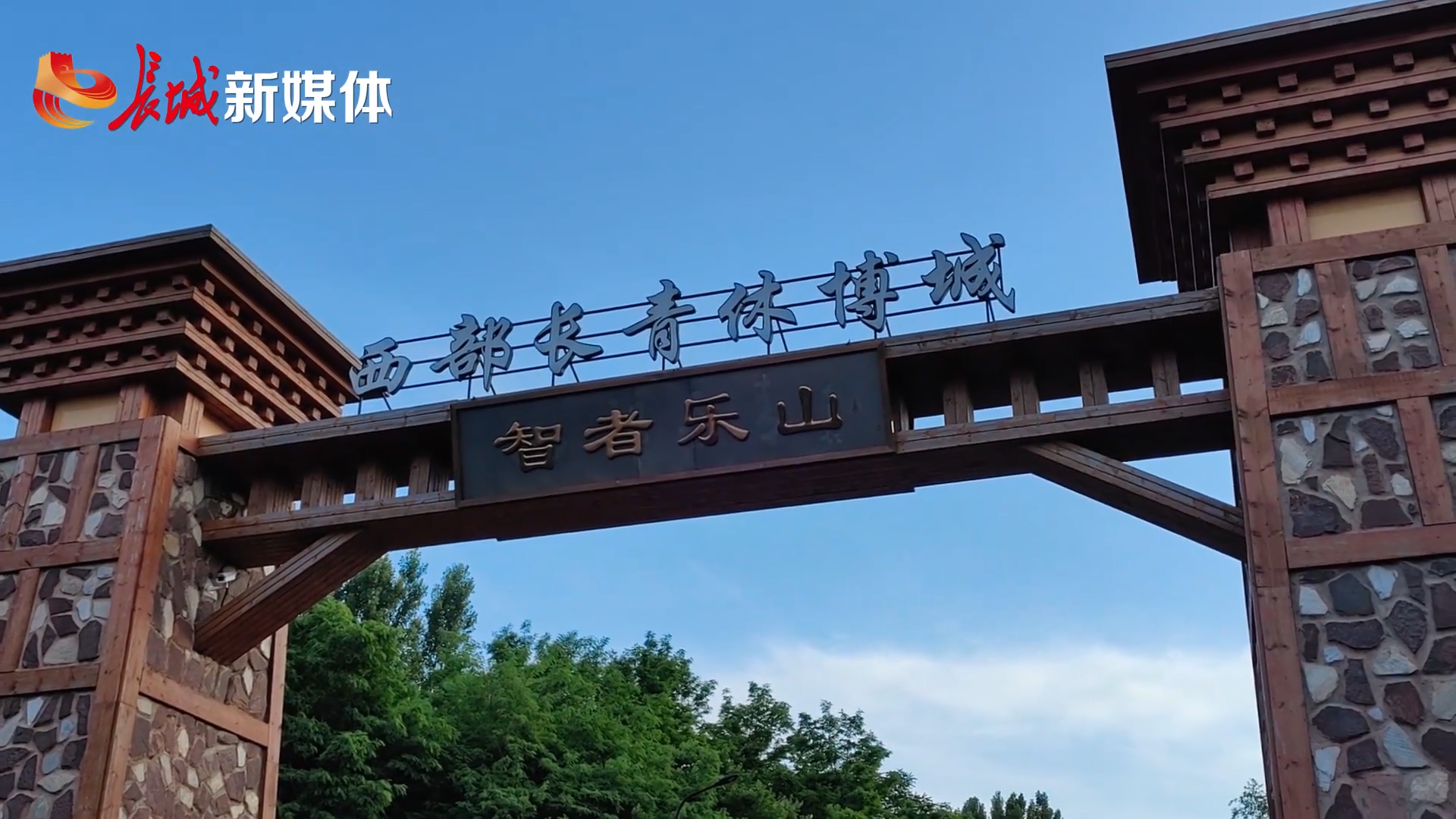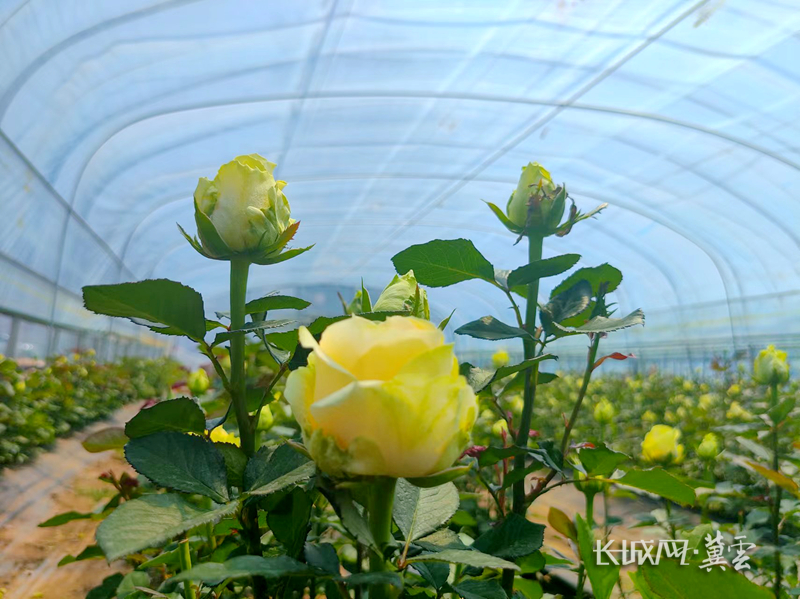
An aerial view of the Xiong'an campuses of Beijing No 4 High School and Beijing's Shijiahutong Elementary School in Hebei province last month. Both schools welcomed their first students in September. MU YU/XINHUA
During their winter vacation, students at an elementary school in Xiong'an New Area, about 100 kilometers southwest of Beijing, were seen reading in the school library, writing calligraphy, singing in classrooms and playing games on campus.
They were enjoying the free winter vacation childcare service offered to students whose parents were too busy to look after them.
The Xiong'an campus of Beijing's prestigious Shijiahutong Elementary School opened last autumn, becoming the first primary school to open in Xiong'an as the highly anticipated "city of the future" is finally taking shape.
On April 1, 2017, China announced plans to establish the Xiong'an New Area in Hebei province to relieve Beijing of functions nonessential to its role as the nation's capital and advance the coordinated development of the Beijing-Tianjin-Hebei region.
In less than seven years, Xiong'an has been transformed from a blueprint into a reality, and it is being built at a rapid pace.
"Our students are the children of the builders of Xiong'an, and the school is obligated to relieve the workers of their worries by taking care of their children during the winter vacation," said Wang Ying, vice-principal of the school's Xiong'an campus.
Last October, authorities in Beijing, Tianjin and Hebei jointly signed an action plan to boost the coordinated development of education in the region. Under the cooperation mechanism, schools in the three areas are encouraged to engage in personnel exchanges and resource sharing in areas such as digital education.
Last semester, students on the Xiong'an campus of the Shijiahutong Elementary School interacted with teachers during livestreamed courses provided by the Beijing campus through an online platform.
Wang said teachers in Xiong'an participate in collective lesson preparation, offline training and seminars with their peers in Beijing, thus ensuring that students in both places enjoy the same quality of education.

A teacher gives an English class for students at the Xiong'an campus of Shijiahutong Elementary School in September. ZHU XUDONG/XINHUA
During the winter vacation, Hebei University hosted a training course for teachers in Hebei, inviting more than 60 experts from prestigious universities in Beijing to give lectures. More than 30,000 primary and secondary school principals and high school teachers from Baoding, Hebei, participated in the training both online and offline.
The Beijing-Tianjin-Hebei region boasts a large number of prime colleges and universities, as well as an abundance of high-end research talent. The coordinated development of the region is expected to promote the sharing of educational resources and bridge gaps in the development of education.
Over the past decade, more than 200 primary and secondary schools in Beijing and Tianjin municipalities have established cooperative education ties with more than 200 schools in Hebei, while 15 Beijing-Tianjin-Hebei vocational education alliances and 22 university alliances have been established.
Editor: Song Lifang, Mi Wenting (Intern)






